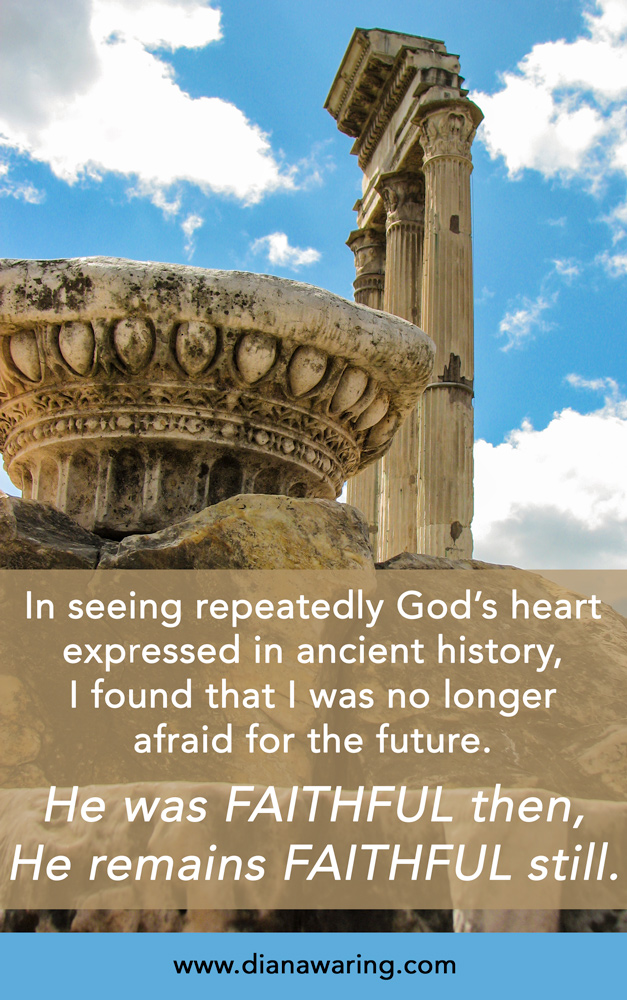How do these fit together: the Bible and history?
Many people today say that they don’t fit together at all, that the Bible is filled with historic myths that only the ignorant believe. . .With a flick of their wrist, they dismiss both the possibility and the one who believes that the Bible and history are connected.
There is a different way to view this, however. Rather than dismissing the connection between the Bible and history, we can examine it. As we learn more, we will see evidence for viewing historic accounts in the Bible as real history. Some fascinating—and life-changing—things will emerge from this pursuit:
-
-
- Bible stories we heard as kids will—with evidence and, maybe, with controversy—become rooted in actual civilizations;
- ancient civilizations will provide new understanding of Biblical accounts;
- our faith will be strengthened as we see God’s faithfulness.
-
I didn’t know this when I started teaching my kids. But when we began to read aloud A Child’s History of the World, by V. M. Hillyer, I kept wondering where the Bible stories fitted into the narrative. We heard about Itchy-Scratchy and the pharaoh who built the Great Pyramid, but there wasn’t any reference to specific people or events listed in the Bible.
Having had a dramatic encounter with the Living God when I was a teenager—which utterly changed my life—I knew that the Scriptures contained life-giving truths. And, having studied evidences for Christianity (apologetics) during university days, I knew that a Bible-based faith was grounded in historic events and specific fulfilled prophecies. So, undaunted, I began searching for the connecting points between the Bible and these ancient civilizations—with my kids watching closely.
First topic on my agenda was Egypt and the Exodus, which I quickly found to be filled with modern-day controversy. Entering museum galleries about ancient Egypt, I had seen posted statements that there “is no evidence of a biblical Exodus.” Historians argued over the date of Exodus (if they accepted there was one at all)—was it in the 1200s or 1400s B.C.? What was the route taken, and did the Hebrews cross the Red Sea or the Reed Sea?
Digging down into the controversies brought ancient Egypt (and the ancient Hebrews) to life for us. No longer merely mysterious (they mummified cats?), these ancient people were suddenly much more complex, with fears and uncertainties and encounters with the God who valued them. (If that last one surprises you, read Isaiah 19:25.)

Immersing myself into the Bible and history also brought a totally unexpected result that had nothing to do with academics. In seeing repeatedly God’s heart expressed in ancient history, I found that I was no longer afraid for the future. He was faithful then, He remains faithful still.

